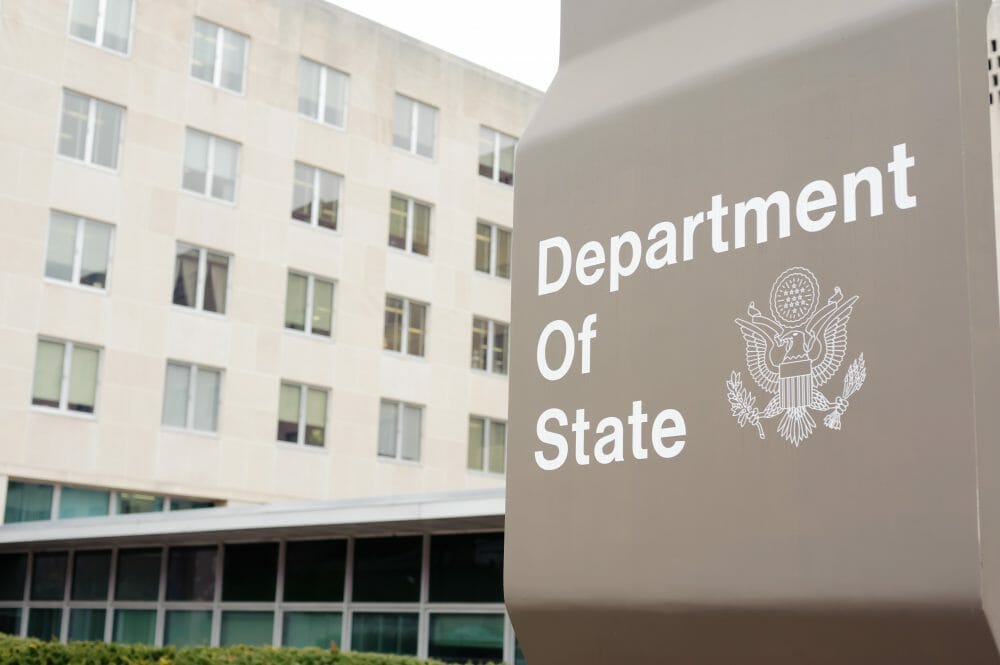The Department of State (DOS) announced exceptions, based on national interest, from COVID-19-related restrictions for certain travelers coming to the United States, including:
- Business travelers, investors, academics, J-1 students, journalists, and treaty traders. Those who have a valid visa in the appropriate class or an Electronic System for Travel Authorization (ESTA) issued before the effective date of President Biden’s proclamation covering travelers from the Schengen Area, United Kingdom (UK), and Ireland, or who are seeking to apply for a visa, and believe they may qualify for a national interest exception should contact the nearest U.S. embassy or consulate before traveling. If a national interest exception is approved, they may travel on either a valid visa or ESTA authorization, as appropriate.
- Students traveling from the Schengen Area, the United Kingdom (UK), and Ireland with valid F-1 and M-1 visas. Such students will be considered automatically for a national interest exception to travel and do not need to contact an embassy or consulate for that reason, DOS said. Students who are applying for new F-1 or M-1 visas should check their nearest U.S. embassy or consulate for information on the status of visa services. Many consular sections at U.S. consular posts around the world are not operating at full capacity due to the COVID-19 pandemic and unique in-country conditions. Visa applicants may request emergency appointments following the guidance provided on the consular posts’ websites.
“Granting national interest exceptions for this travel to the United States from the Schengen area, UK, and Ireland, will assist with the economic recovery from the COVID-19 pandemic and bolster key components of our transatlantic relationship,” DOS said.
- H-2A and certain H-2B travelers who have been present in South Africa. These travelers may qualify for national interest exceptions “if they are providing temporary labor or services essential to the United States food supply chain.” Covered occupations include, among others, seafood processors, fish cutters, salmon roe technicians, farm equipment mechanics, and agriculture equipment operators. Applicants applying for a visa will be considered for an exception at the time of interview, DOS said. “Travelers who already hold valid H-2A or food-supply-chain related H-2B visas and believe they meet the exception criteria should follow the procedures set forth on the Embassy/Consulate website where their visa was processed for consideration for an exception,” DOS said. The exception criteria apply only to H-2 travelers and applicants subject to the January 25, 2021, Presidential Proclamation due to physical presence in South Africa.
DOS continues to grant national interest exceptions for qualified travelers seeking to enter the United States for “purposes related to humanitarian travel, public health response, and national security.”
Contact your WR attorney for advice and help in specific situations.
More info:
- “National Interest Exceptions for Certain Travelers From the Schengen Area, United Kingdom, and Ireland,” Dept. of State, Feb. 10, 2021, https://travel.state.gov/content/travel/en/News/visas-news/national-interest-exceptions-from-certain-travelers-from-the-schengen-area-uk-and-ireland.html
- “National Interest Exception for Certain H-2 Travelers From South Africa,” Dept. of State, Jan. 28, 2021, https://travel.state.gov/content/travel/en/News/visas-news/national-interest-exception-for-certain-h-2-travelers-from-south-africa.html
- “Proclamation on the Suspension of Entry as Immigrants and Nonimmigrants of Certain Additional Persons Who Pose a Risk of Transmitting Coronavirus Disease,” Jan. 25, 2021, https://bit.ly/3pkZht4
- “State Dept. Exempts Foreign Students From Travel Restriction,” Law360, Feb. 11, 2021, https://bit.ly/3tSIMrs


